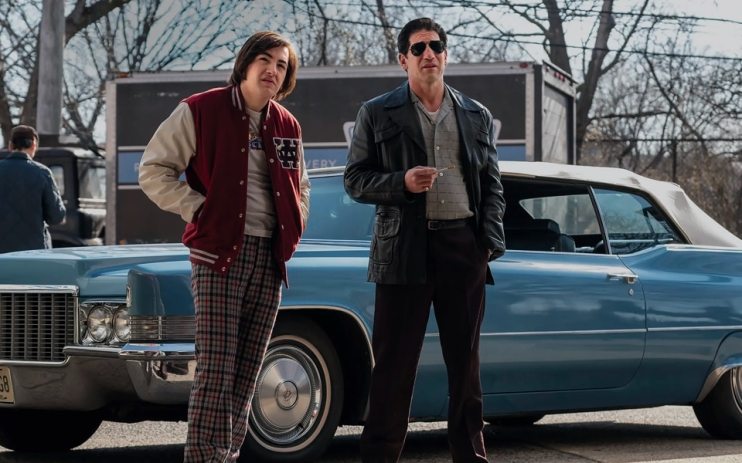The Many Saints of Newark review: The Sopranos makes its long-awaited return

* This review contains spoilers for The Sopranos TV show *
The Sopranos was a near-perfect TV show, a Shakespearean epic that took the gangster movies of Francis Ford Coppola and Martin Scorsese and shaped them into a surreal, psychological soap opera.
Where other shows have aged, the Sopranos is as fresh today as when it first aired in 1999, right down to its enigmatic, Schrodinger’s Cat ending, which left antihero Tony both dead and alive, trapped forever in a moment of almost-violence.
With the luxury of 86 episodes, writer David Chase crafted one of the most in-depth portraits of flawed masculinity ever committed to film, with James Gandolfini’s Tony a swaggering collection of contradictions, at once fearsome and brittle, charming and obnoxious, dangerous and dependable.
That’s a lot for this prequel to live up to, even with Chase back on writing duty.
The Many Saints of Newark begins with a voiceover from beyond the grave: Christopher Moltisanti – literally “many saints” – reminding the audience that Tony Soprano “strangled me to death” and then “gave my wife and kids his pocket change”.
But in the first of many narrative sleight of hands, Many Saints places its focus not on the young Tony but his uncle Dickie Moltisanti, Christopher’s father. Played by the excellent Alessandro Nivola, Dickie is a gentleman gangster in the mould of Michael Corleone: calm, suave, quietly menacing. We’re invited to root for him just as we were invited to root for Tony, even as his life starts to fall apart and his acts of violence become increasingly extreme.
Witness to all of this is a troubled young Tony Soprano, a wannabe American football player who’s involved in his own ramping up of bad behaviour, from getting kicked out of school for running a bookmaking operation to joyriding an ice cream truck. James Gandolfini’s son Michael takes on the role and really captures the awkward tension of a kid on the knife-edge between a normal life and the life we know he ends up with.
But it lacks one of the key ingredients that made The Sopranos so special: time. There simply isn’t space for all of its characters, nor all of its ideas. In two hours it tries to squeeze in the Greek tragedy of Dickie Moltisanti; the making of a young Tony Soprano; a period piece about racial tensions in 1970s Newark and how these were used to further the agendas of the various crime syndicates; not to mention an entire basketful of easter eggs for Sopranos fans.
It’s forever pulled in a dozen different directions, an ensemble TV show with only a single episode to tell its story. While at pains to avoid being a Sopranos “bonus episode”, many of the story beats require a fairly in-depth knowledge of the series to hit home, which feels at odds with its desire to make something new.
One of the more independent threads charts the conflict between Dickie and another gentleman gangster, Harold McBrayer (Leslie Odom Jr.), a young black man tired of eating the table scraps left behind by the Italians and emboldened by the burgeoning Black Power movement. Odom Jr. is excellent, and his scenes set in predominantly black neighbourhoods add a new facet to the Newark tapestry. But his story eventually peters out, left behind in the scramble to reach a satisfying conclusion that marries up with the beginning of The Sopranos.
Many Saints is at its best when you’re simply spending time with familiar characters, some of whom drift slowly into focus: checking in on Paulie Walnuts, admiring Silvio’s hairpiece, realising that’s Uncle Junior. The casting is spot-on throughout, with some resemblances so strong I had to check whether there were more children of the original cast involved besides Michael Gandolfini. Special mention goes out to Ray Liotta, who is both hilarious and terrifying as Dickie’s vicious thug of a father Hollywood Dick, taking The Sopranos tradition of hiring actors from Goodfellas to its gloriously logical conclusion.
Many Saints isn’t a failure on any front: it’s well cast, well acted, well directed and its grainy film stock looks gorgeous. It’s a kind of tone poem, immersing you in the world that created Tony Soprano. But Chase is so focused on the big picture that he pans out until you can no longer see that little spark that made The Sopranos so vital. The result is a decent gangster movie, David Chase’s spin on the greats of the genre, weighed down by its own history and never quite carving an identity of its own.
